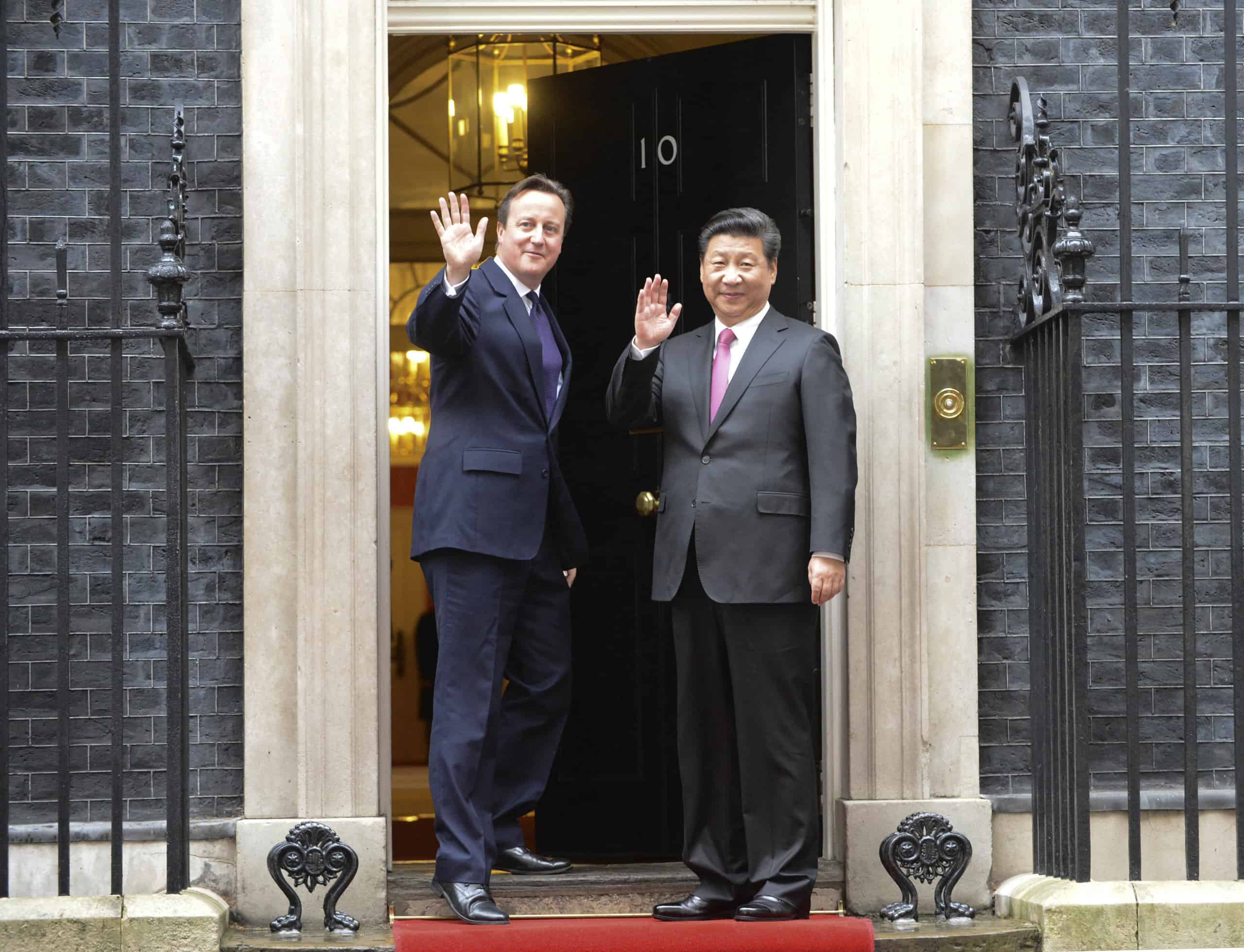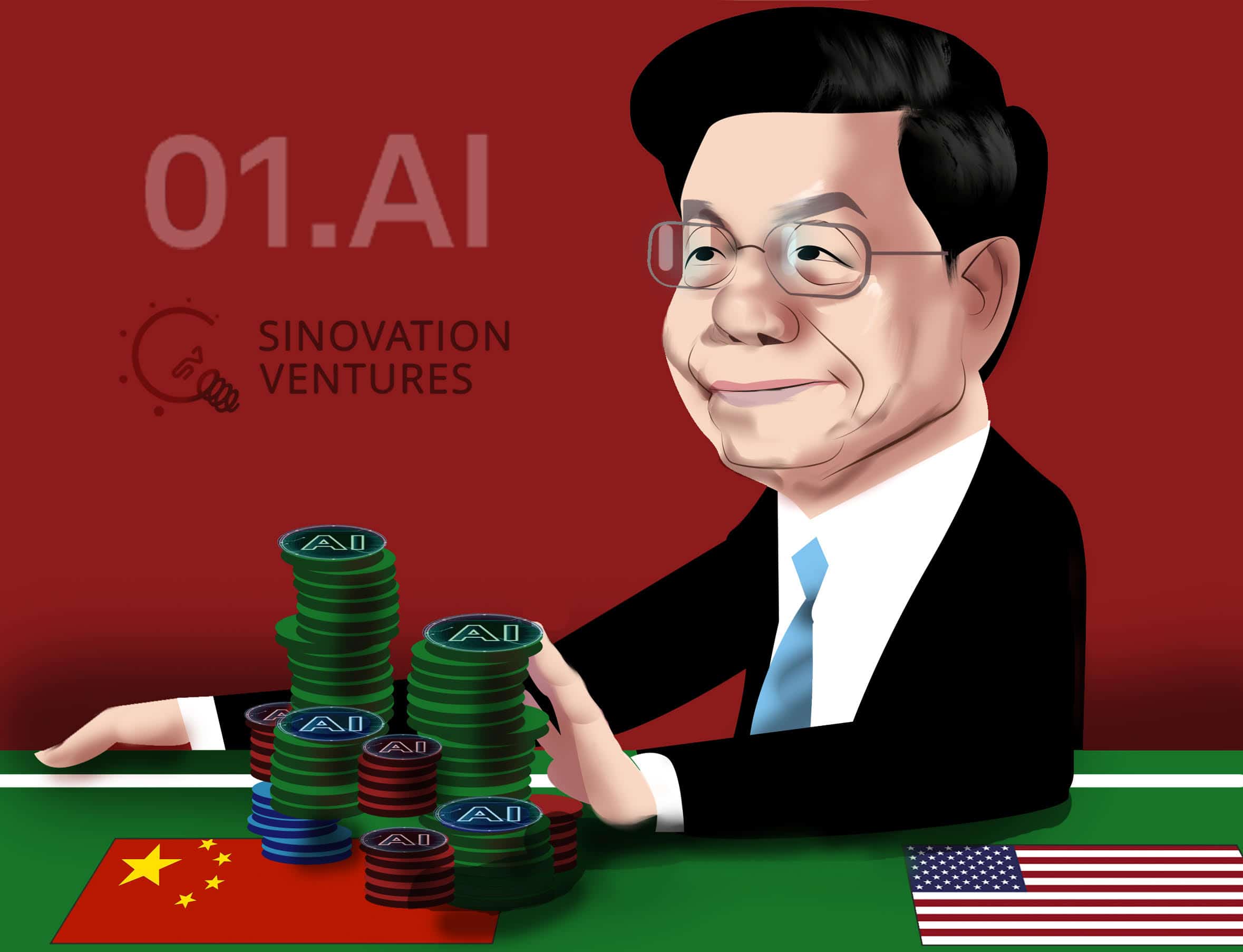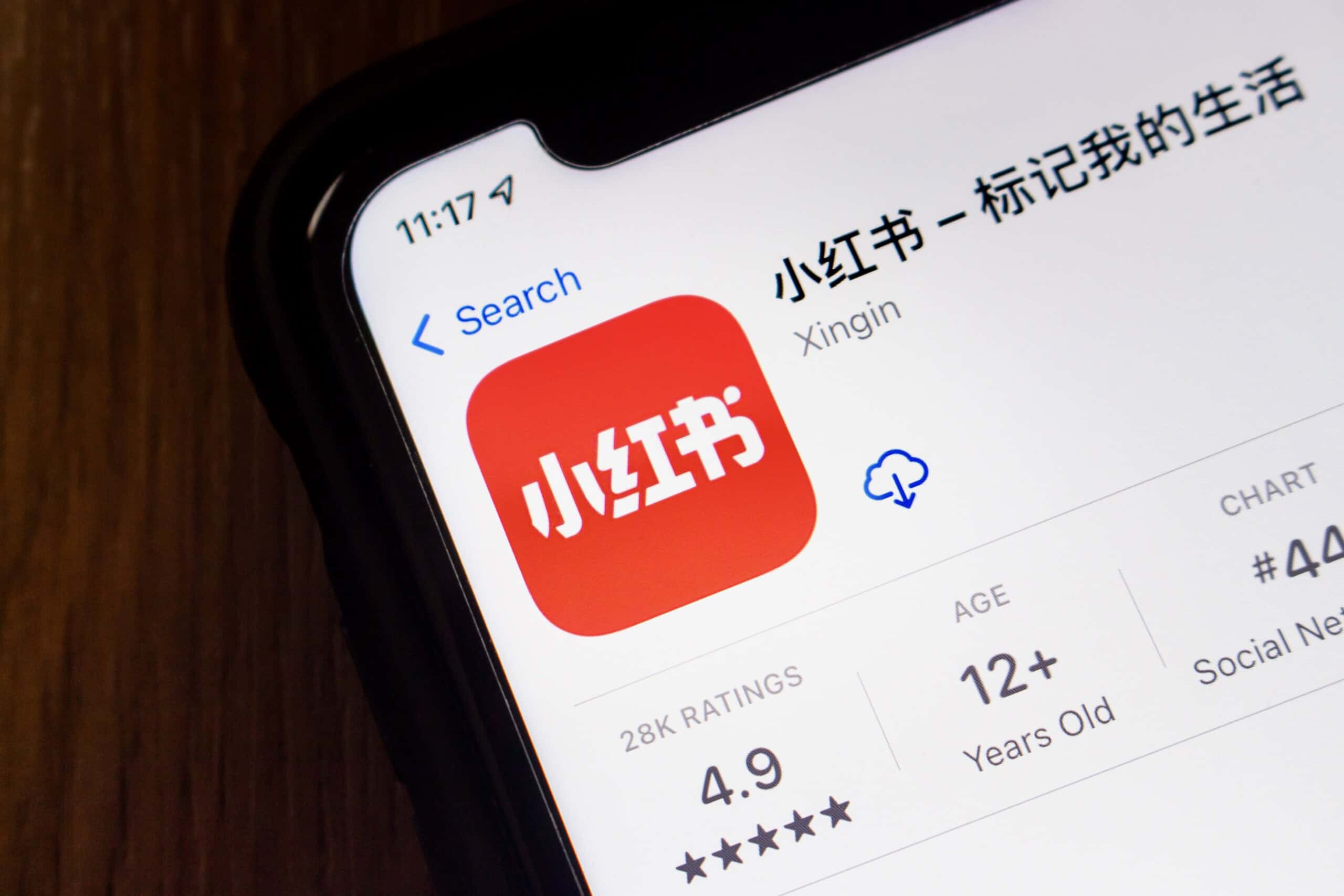
The U.K.’s ruling Conservative Party is in the process of choosing a new leader, who will by default become the next Prime Minister of the country. Only two candidates remain: former Chancellor [equivalent to a finance minister] Rishi Sunak, and current Foreign Secretary Liz Truss. The winner will inherit an ugly domestic policy in-tray, thanks to a spiraling cost of living crisis, with just two years to go before the next General Election. They will also inherit an urgent foreign policy concern not seen for a decade — China.
Britain’s relationship with China looked very different for the last three Conservative Prime Ministers when they walked into Number 10 Downing Street. Each operated during a period in which a deliberate effort was underway to strengthen bilateral ties, called the Golden Era, which lasted roughly from 2014 to 2020. Its roots lay in an earlier Conservative Government, led by David Cameron and closely advised by his chancellor, George Osborne.
Cameron justified the engagement in a joint speech with Xi during the latter’s state visit to the U.K. in 2015, stating “The more we trade together, the more we have a stake in each other’s success, and the more we understand each other, the more that we can work together to confront the problems that face our world today.” Truss herself, then a junior minister, delivered a speech in 2014 welcoming Confucius Institutes to the country. Osborne, following a trip to Xinjiang with British business leaders, declared that “no economy in the west is as open to Chinese investment as the U.K.”
Chinese investment indeed began to flow into Britain, including in sensitive sectors like nuclear power and telecommunications infrastructure. High-level summits and dialogues were launched. The U.K. became a founding member of China’s Asian Infrastructure Investment Bank. British universities were encouraged to pursue closer ties with their Chinese counterparts and to aggressively pitch for Chinese students to come to the U.K..
Self-described Sinophile Prime Minister Boris Johnson has proved unable to stem the tide of anti-China feeling.
Set against this backdrop, the deterioration in sentiment towards China among the British political establishment in the last couple of years appears even more dramatic. The downward spiral has been driven by a number of factors, among them Beijing’s crackdown on Hong Kong, perceived Chinese opaqueness around Covid-19’s origins, American action under President Donald Trump, Western disillusion with Xi, and news of the atrocities taking place in Xinjiang.
By early-2020, two new China-focused groups had emerged in the British parliament, allowing members to channel their frustrations. The Inter-Parliamentary Alliance on China (IPAC) and the China Research Group (CRG) have played an essential part in shaping the U.K.’s approach to China, one that’s often missed by American commentators. Stuffed with prominent backbenchers [MPs who aren’t in the government], their growing influence speaks to an increasingly popular Parliamentary view — engagement with China hasn’t worked, and that the Golden Era was a failure.
Self-described Sinophile Prime Minister Boris Johnson has proved unable to stem the tide of anti-China feeling. Under domestic and U.S. pressure, in mid-2020 he declared Chinese firm Huawei would not have a role in the U.K.’s 5G networks. When the government published its steering foreign policy document a year later, called the Integrated Review, it classified China as a “systemic challenge…to our security, prosperity and values.”
By the time this summer’s leadership election race began, the view from Westminster towards Beijing had worsened further. Tens of thousands of qualified Hong Kongers have been given the right to residence in the U.K., irking China’s leaders.
The U.K. joined the diplomatic boycott of the Beijing Winter Olympics in February, while the government is reviewing a Chinese-linked takeover of a small British semiconductor factory. Parliament has unanimously come to the decision that a genocide is taking place in Xinjiang, and enacted legislation aimed at removing slave labor in supply chains.
As I outlined in a recent note to readers, the British public — and crucially, Conservative party members — have hardened their views towards the Middle Kingdom too. Britons now believe climate change, terrorism, and the rise of China are the country’s three biggest security threats, while less than a fifth support Chinese economic engagement, according to polling from the British Foreign Policy Group.1https://bfpg.co.uk/wp-content/uploads/2022/06/BFPG-UK-Opinion-Report-June-2022.pdf More of the British public want a Prime Minister who sees China, rather than Russia, as the U.K.’s primary threat, separate recent research has found.
It is little surprise, then, that China has featured prominently throughout the current leadership contest. For Truss and Sunak, the urge to ‘China-bash’ has been compounded by a recurring motif in recent British elections — the popularity of politicians who position themselves as challenging the status quo. Both Sunak and Truss have tried to portray their opponent as the Golden Era continuation candidate, and themselves as the leader more likely to be tough on Beijing.
The tricky part for Sunak has been that Truss held all the initial China hawk cards. As chancellor, he had given a speech in 2021 criticizing the lack of nuance in the conversation around China, while reports earlier this year claimed the British Treasury, under his leadership, was pursuing closer economic ties with the country. In a rush to boost his anti-Beijing credentials, Sunak announced in late July that as prime minister, he would ban Confucius Institutes and implement other China-targeting moves such as using the British security services more to help U.K. businesses, along with a rough pledge to create a ‘technology NATO’.
None of Sunak’s proposals were costed, nor offered genuine answers to any strategic issues. They also made the critical error of taking the battle over who is the ‘biggest China hawk’ into comfortable territory for Truss. The foreign secretary has previously expressed the view that the G7 can form an ‘economic NATO’ of sorts to combat Chinese economic coercion, and that the U.K. needs to urgently scale back its economic dependency on China. Her track record of hard talk towards the Chinese Communist Party has helped her garner the support of heavyweight Conservative colleagues, and much of the media establishment. As the right-wing Spectator magazine noted, “A Truss government would be likely to take the toughest position on China of any to date”.
After Sunak revealed his four China policies, Truss hit back with her own, somewhat vague announcement. Under her premiership, she declared, the Commonwealth — a grouping of around 50 countries that were mostly former British colonies — would be turned into an economic bulwark against Chinese Government interference and influence across the globe.
This is urgent. We cannot just default into having a decade of strained relations with China, with a potentially horrific conclusion.
It’s understandable from a leadership election perspective that both Sunak and Truss want to talk tough on China, but not engage in the tricky details around issues like economic decoupling or raising understanding of China. There’s little to be gained by presenting a more complex picture of a China beyond President Xi and the CCP, and regardless, the (social) media environment within which both are campaigning provides little incentive to offer anything other than soundbites. Their announced China policies should be read as products of a campaign where gaining attention and establishing oneself as a mold-breaker are the major currency: Many will likely not come to pass, regardless of who gets into office.
Still, how the new Prime Minister marries the U.K.’s newly hardline approach to China with efforts to counter ballooning inflation and impending economic recession will be a pressing concern for the new leader. Contingency plans around a potential Chinese invasion of Taiwan in the future also require much sharper prioritization and thinking, particularly in the light of Nancy Pelosi’s recent visit to the island.
Britain’s next Prime Minister will require intelligence, courage, ambition in engaging, challenging and competing with China. They will need to clearly understand the opportunities and threats, cut through the screeching bluster of Westminster, and appreciate the complexities of the post-Brexit world. They should have the compassion to talk proudly of the positive impact the Chinese diaspora has in the U.K. — the home of the world’s first Chinatown. And they should surround themselves with people who will challenge their way of thinking, not make populist policy based on how positively it will be received across the British media, and be willing to present bold new ideas, such as the creation of a civil service ‘China House’, bringing together the top experts and mandarin speakers from across Whitehall into one cross-departmental unit.
This is urgent. We cannot just default into having a decade of strained relations with China, with a potentially horrific conclusion. The challenge of dealing with China does not need to be framed so negatively — the next Prime Minister can make Global Britain a force for good in the world.

Sam Hogg was the founder and editor of Beijing to Britain, a weekly briefing that, until its recent closure, closely monitored how British politics and business thinks about China. He previously worked on China policy in Parliament, and strategy in the private sector. @EditorBTB



